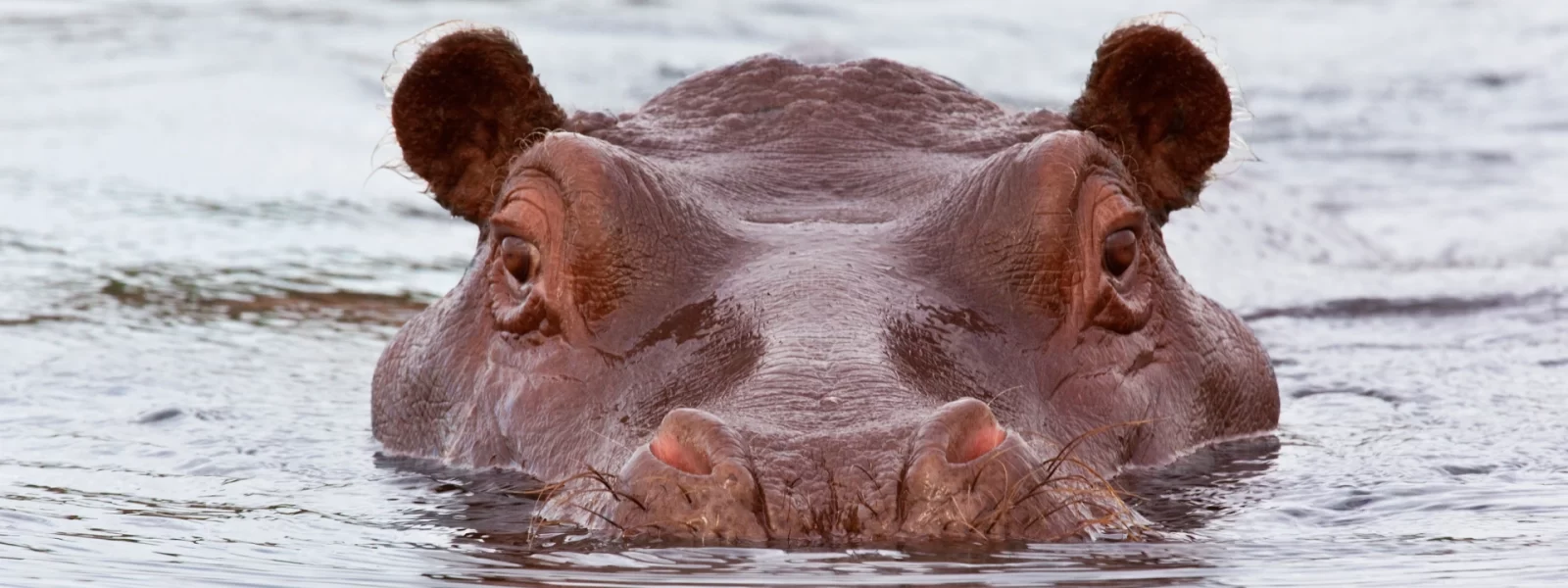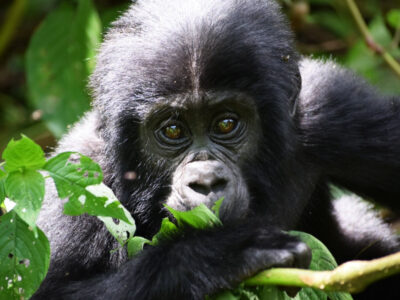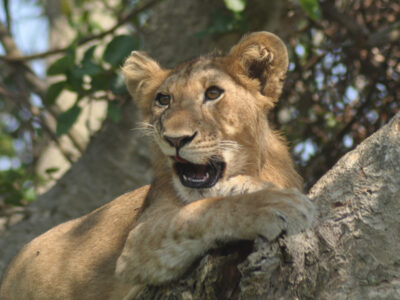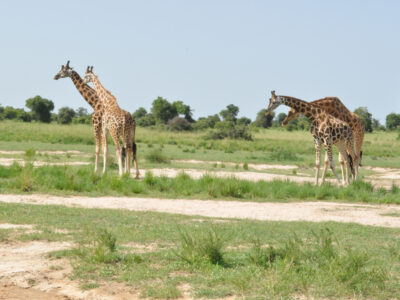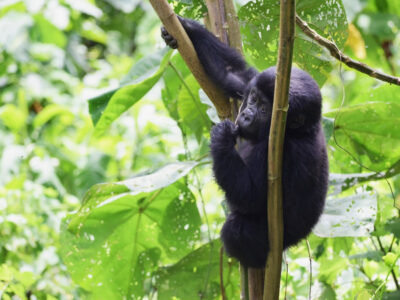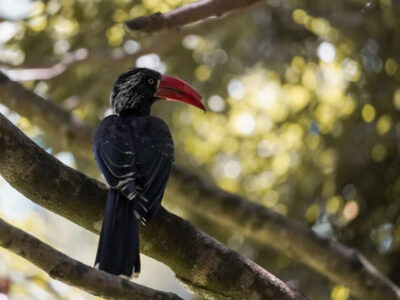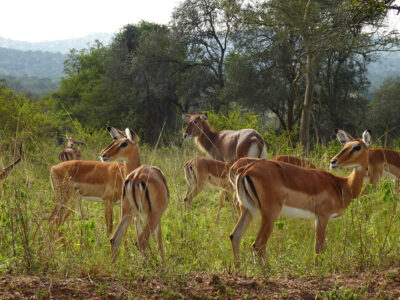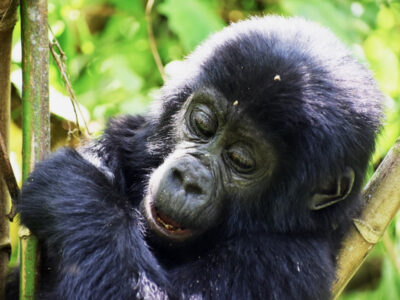Uganda’s stringent law against poachers has remarkably impacted the butcher of elephants and hippos for their teeth and tusks.
There has emerged a concern that local poachers are still killing the iconic hippos, and thereby threatening the country’s ecosystem and the tourism sector.
After elephants and white rhinos found in Uganda’s national parks, the common hippopotamus is the third largest and heaviest land mammal. Their killing for meat other than their teeth has particularly been observed in the Murchison Falls National Park.
The Murchison Falls National Park hosts an estimated 3,000 of Uganda’s 10,000 estimated hippo population.
The founder of Uganda Conservation Foundation (UCF) Michael Keigwin whose charity has worked with Uganda Wildlife Authority to boost conservation and anti-poaching efforts said that they are losing our hippos at a dramatic rate. It is a massive issue; our hippos are being targeted. It is one kill, one large animal to butcher and move. It is not like chasing after four Uganda kobs in the savannahs where the rangers can see you.
Despite their massive weight according to Keigwin they are easily killed. “One of the major reasons why they are targeted more than before is searching for profits.” He told URN.
Keigwin explains that whatever people are eating, there is a zoonotic disease problem. Everybody has been told this again and again. But to some people, the trade in bush meat doesn’t care about the reality. What they care about is the money. And for hippo, it is one kill, a lot of money, a lot of profit.
Keigwin who has embarked on efforts to raise funds to support hippo conservation projects through fundraising and capacity building added that it is devastating for the country. They remove tourism revenue; how many jobs are they removing here? he will tell you one million.
Poached with Snares.
Using snares made from locally collected electric wires including those extracted from motorcars and motorcycle tyres has made Uganda Wildlife Authority observe so much poaching.
A store clerk with Uganda Wildlife Authority John Wilembe told URN they are increasingly seizing snares and wheel traps in Murchison Falls National Park.
To trap elephants, hippos, and lions, tons of so-called bear traps or snares used by poachers were buried in the foundation of the office block where Wilembe’s office is. The idea was that those would not end up in the hands of the poachers again.
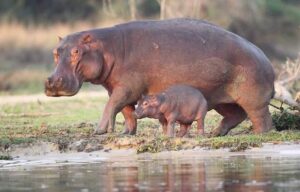
But again, the “snare mountain” or pile of those traps confiscated from poachers is piling almost covering half of the room in which they are kept.
Because materials for making them are easily available in communities, Wilembe expects many more traps to end up in the park. The extension of electric power lines to the West Nile has particularly come with the influx of new and stronger electric wires either stolen or bought from workers.
Wheel traps are sourced from garages in the districts neighboring the national park on the other hand. Artisans specialized in making the traps and the spears continued unfettered.
Wilembe says that they have two types of speakers used by the poachers. Spears with wooden handles are strictly used by the Alur from West Nile, and then those with wooden handles are used by the Acholi.
Wilembe suggests that the law of Uganda cannot be used to arrest them, if you get somebody with a wheel trap in his compound, you cannot arrest him. The government has to change the law. A wheel trap costs about three hundred thousand shillings.
Whether in the water or while ranging in the savannah, special traps have been made to target hippos recently. Wilembe asked why hippos are targeted and he explains Hippos are being targeted because once they kill a hippo, they can get much more money than other small animals. And then, hippos move mostly at night close to the communities.
“There is too much poaching with snares in the different sectors of the parks.” Michael Keigwin notes. Keigwin says that they have to stop the dumping of car tyres in this country. Where the car wire becomes a trap.
One of the largest concentrations of hippos is in Murchison falls national park. Despite the fact that the park is the biggest park, the biggest concentration of hippos could be found at the hippo pool along the River Nile.
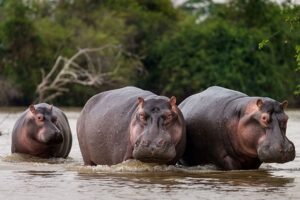
During the dry season from June to September and November to December, visitors are told that these are the best time to see the hippos. Some have been to the hippo’s pool but have not seen any although some tour operators suggested that some of them might have migrated to DRC.
The Chief Warden of Murchison Falls National Park Fredrick Kiiza was interviewed by URN saying that few meters away from the Nile Delta where the Hippos pool where hippos are nolonger spotted in their vicility. “The majority of the communities across the Nile out of the park boundary used to survive on Wildlife.” He added.
Kiiza says that their neighbors come from community land whose the majority of them like the meat of the hippo. So they had to deploy the marine patrol to save the remaining animals.
Kiiza does not entirely agree that the hippo population here is on the decline. Kiiza says that because this is nature and this is not a zoo where the hippo pool must remain the same. They are having climate change. When they look at the ecosystem, it used not look the way you see it.
He says that when they do a proper science, they will understand why hippos migrate. However, hippos have been poached but not to such dangerous levels that cause alarm. With continued marine patrols, the numbers are going to increase. Kiiza agrees some poachers are turning to the marine animals despite his disagreement. He says two things could be happening.
He explains saying that there is no save zone in the park for the poachers. It is very risky for you to enter the park. Hippos are in the water, today they may be here and they will migrate. But there is also an open market for game meat across in Congo and that has been their problem.
It has been hard to find verifiable and researched information about the extent of the decline in the hippo population in Uganda.
Charles Tumwesigye UWA’s Director of Field Operations says that ranger reports and an aerial survey indicated that hippo numbers have dropped. During the recent years, Keigwin has indicated about 60 percent of the hippos at Murchison have been poached.
A conservationist with one of the conservation groups in Uganda who asked for anonymity told URN unlike other animals, hippos have received the attention they deserve in terms of the threat to their numbers and threats to their ecosystems.
Hippo habitats have been destroyed thus there is no doubt that they are being hunted. It takes many years to replace hippos even if lose just five hippos in a month or year in the entire park.
Due to their very low reproductive output, studies have found that hippos are vulnerable to over-exploitation. It has further been established through modeling that even an offtake of 1% of adults can lead to a high probability of population declines over 30-40 years.
Asked why we need to conserve hippos, Kiiza says “That is a good question. Because they are in the food web because they are in the food cycle of the marine ecosystem. Kill all the hippos, there will be no fish in the water” It has been documented that hippo declines in the River Nile and the Lake would have a knock-off effect for other on other for other species in those water bodies.
Kiiza says that hippos leave the water, come on the grounds, graze many kilograms of grass, they go back in the water and shit there. In other words, they take food for the fish.
Some have said hippos act as the ‘glue’ that holds habitats together. It has equally found that while grazing, hippos create “grazing lawns” of grass good for other grazing animals in the national parks and that they play a critical role in deterring bushfires.
Uganda banned the trade in hippo teeth, worried about falling hippo numbers. But hippos have been losing their habitat and continue to be poached for meat. While some countries have registered incidents of trade in hippo teeth and skin, carcasses of hippos have been found with some of those parts intact meaning that they are not the reason hippos are butchered.
Keigwin explains that poachers often leave the bones and teeth. They take other pieces of flesh
What can be done?
“so long as there is poaching and UWA is not resourced enough in terms of personnel and technology to recover those resources, there is always going to be a struggle.” Keigwen says. “Why can’t we put a dollar into community development programs? Which could be scholarships. He says that they are having to spend a dollar in preventing people come in although he prefers having that dollar in people for scholarships for education because UWA has done a good job they need to continue doing that.
“UWA has far fewer than the recommended number of rangers in all the parks.” one of the top rangers has indicated to URN.
He suggests that Ugandans should learn from Kenya where more than 75% of the wildlife is outside the national parks. “People have an affinity, they have jobs, they are involved in tourism, they have care. Many Ugandans have totems but gradually that is eroding in peoples’ thoughts”

